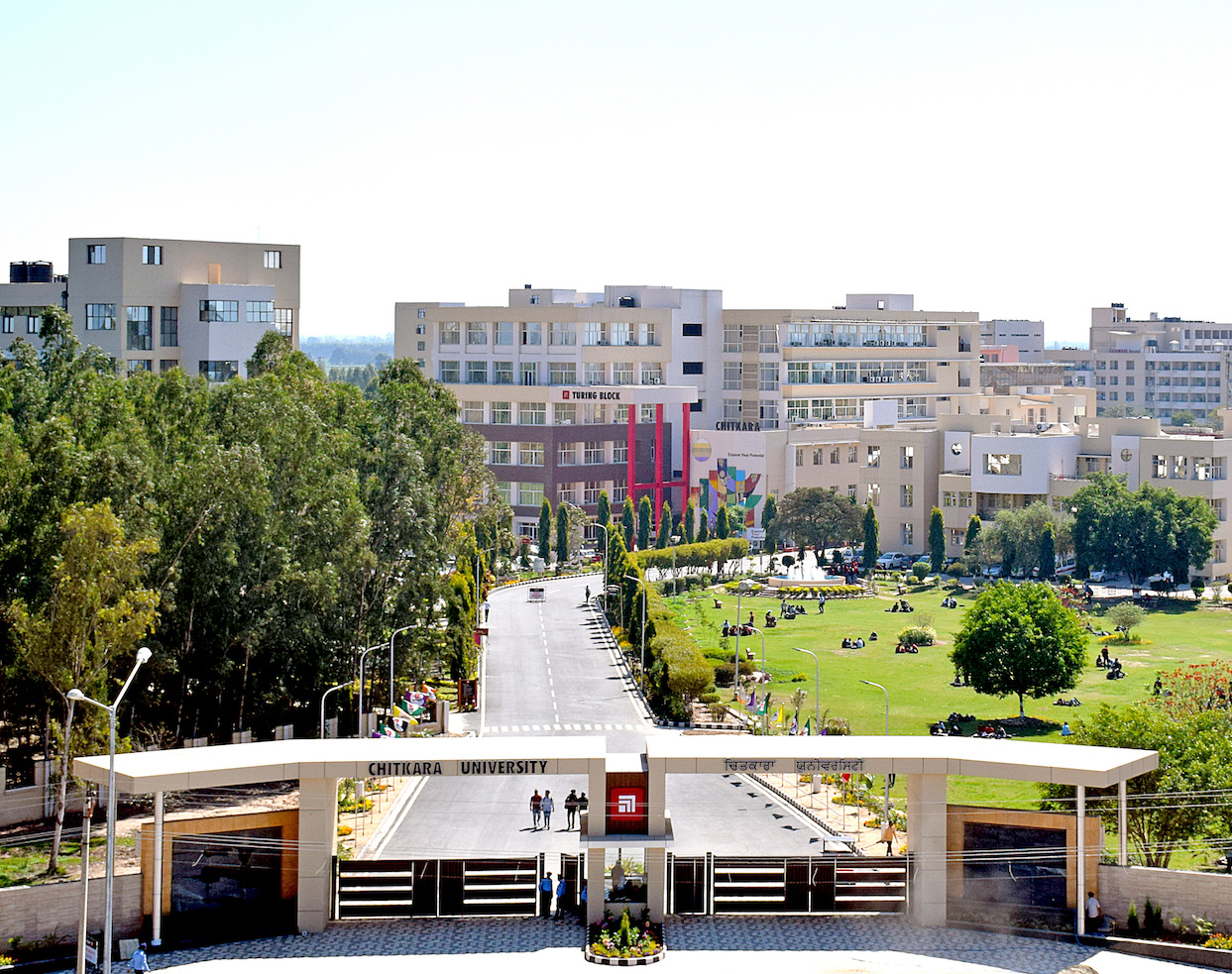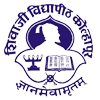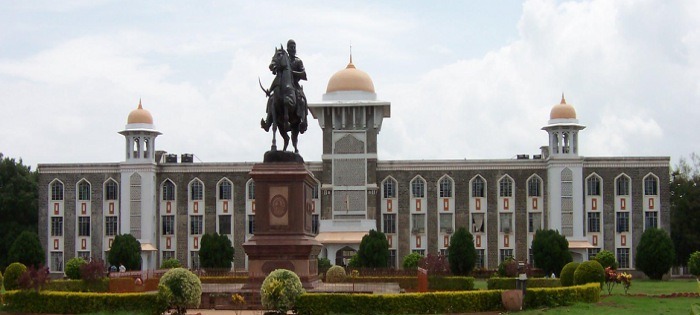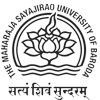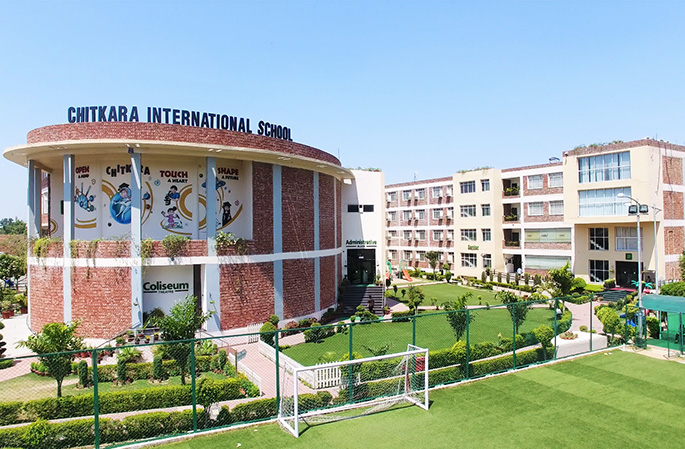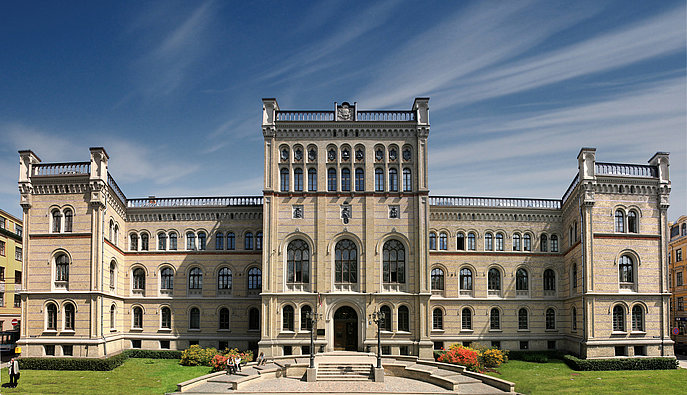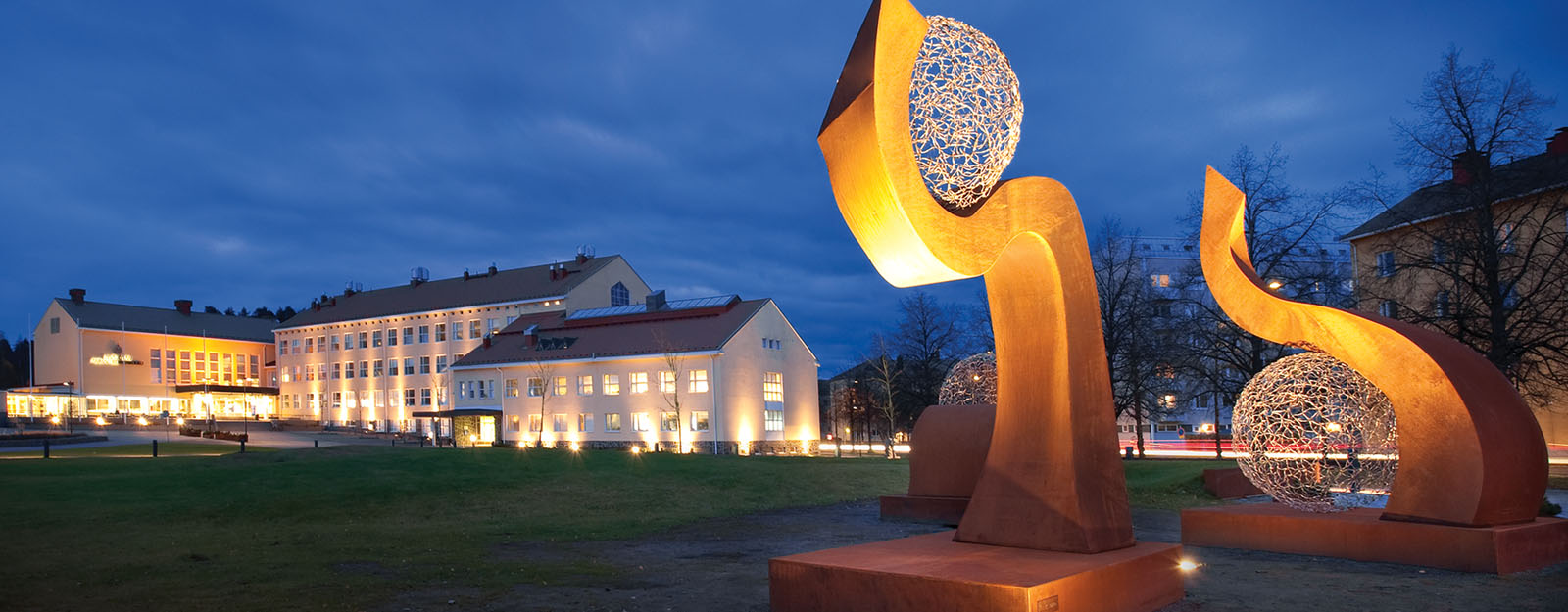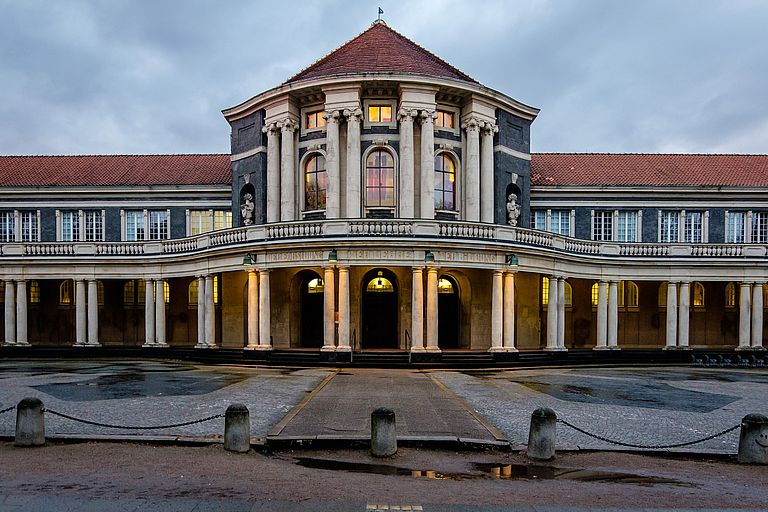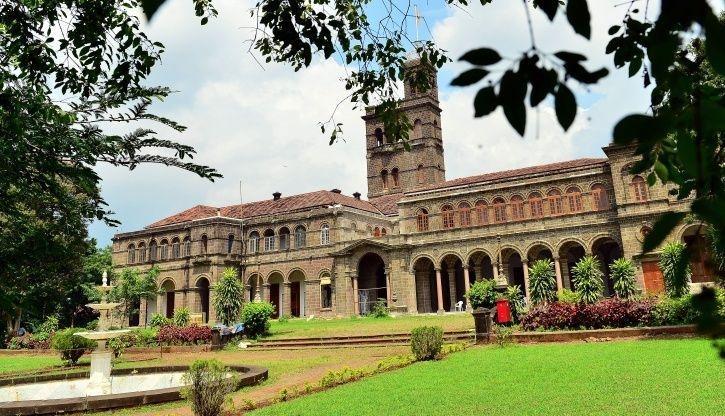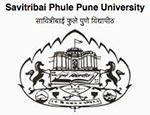Partners
Chitkara University is a private non-profit state University located in Punjab and Himachal Pradesh, North India. Chitkara University is a student-centric multi-disciplinary campus. In less than a decade of existence, most of the academic programs are ranked in the top 50 programs in the country. In 2010 Chitkara University Punjab was established by the Punjab State Legislature under “The Chitkara University Act”. Chitkara University is a government-recognized university, accredited ‘A+’ Grade by National Assessment and Accreditation Council.
Chitkara College of Education is recognized by the National Council for Teacher Education and Punjab State Government. The B.Ed (Bachelor of Education) Program is designed to prepare educators in close connection with primary and secondary schools: the College is planning to include in the study curricula compulsory internship working experience to let students to link theory and practice acquiring necessary skills for proficient teaching in real classroom situations. Group reflection and critical thinking are encouraged: prepares student-teachers to face the emerging challenges resulting out of globalisation and its consequences. The B.Ed. program has an annual intake of 50 students, and the College also has M.Ed. (Master of Education) at its premises. Chitkara College of Education has a nucleus of 5 full-term faculties, as the implementation of the modules is conducted by staff coming from all Chitkara University constituencies.
In a very short period of time, School of Mass Communication built its reputation as institution of excellence, becoming premier journalism and media schools in north India.
The nascent Spaak Centre for Multidisciplinary European Studies aims to be a horizontal university department creating an umbrella team keen to create solid bridges between India and Europe on todays’ global challenges. As an instrumental action, the Centre would become the excellence in Erasmus+ project design, and academic lighthouse of the European Commission in India..
Shivaji University, established in 1962, is named after the Great Maratha Warrior and founder of the Maratha Empire, Chhatrapati Shivaji Maharaj. It was inaugurated on 18th November 1962, by Dr. Radhakrishnan, the eminent philosopher and educationist. The jurisdiction of the University is spread over three districts, viz. Kolhapur, Sangli and Satara, with over 300 000 students’ enrolled at the 296 affiliated colleges and recognized institutes under its jurisdiction, and in 40 departments on the campus. The University imparts education in 4 major faculties of Faculty of Science and Technology, Faculty of Commerce and Management, Faculty of Humanities, Faculty of Interdisciplinary Studies. The efforts of the University towards excellence in higher education are being recognized through the substantial grants received from funding agencies like UGC, ICSSR, BARC, DST, DBT, CSIR, DRDO, MPCB, DEC, DAE-BRNS, MOEFCC etc.The university is accredited Grade “A++” by NAAC.
Another indicator of our recognition is having collaboration with other premier institutes in India. Shivaji University has MoUs with different leading organizations in the area of Teaching and Research. Shivaji University is motivating students’ merit by introducing various scholarships such as ‘Shivaji University Merit Scholarship’. University provides following facilities for on campus students such as Library, Boys and Girls Hostels and Earn and Learn Scheme, Health Centre, Sports Complex, etc. The Department of Education was established on 7th November 1979 and the building in which it is housed is named after the renowned Educationist Padma Bhushan Dr. J.P. Naik. The Department has always updated itself and changed the thrust areas of teaching and research over the years. Bachelor of Education, Master of Education, and Ph.D. programs are constantly updated following the University Grant Commission and the National Council for Teacher Education guidelines. The department also offers a postgraduate diploma in Teacher Training Education and postgraduate diploma in Mass Communication Education. Overall, the staff is composed of 12 teaching experts, and teaching activities are conducted in cooperation with other departments of the university.
The Maharaja Sayajirao University of Baroda (MSU) was established as public university in 1949, one of the oldest centres of learning in western India with the mission to sustain an environment of academic excellence and innovative research that enable students to think global and act locally with a conscious focus on indigenous perspectives, equitable society to inculcate tolerance and compassion. It is the only state University in Gujarat with a residential, unitary character having English medium of instruction with more than 1200 well-qualified faculty members and 1500 administrative staff to facilitate the learning of more than 40500 students. It comprises of 14 Faculties (Arts, Commerce, Education & Psychology, Family & Community Sciences, Fine Arts, Journalism & Communication, Law, Management Studies, Medicine, Performing Arts, Science, Social Work, Technology & Engineering, Pharmacy) having 111 Departments, 3 constituent colleges, 8 institutes and 13 centers of Specialized Studies offering a wide spectrum of courses from kindergarten to Ph.D. The university is accredited Grade “A” by NAAC.
The Faculty of Education and Psychology established in 1949, it comprises three departments, Department of Education, the Department of Educational Administration and the Department of Psychology and the University Experimental School. The Department of Education provides leadership to the entire field of Teacher Education in the country. In recognition of its excellent contributions in the area of teaching, research and extension, the University Grants Commission raised it to the status of the Centre for Advanced Study in the discipline of Education (CASE) in 1963-64 and continues with the same status today. The Department offers Two Year full time B.Ed., Two Year full time M.Ed., M.Phil. in Education, Ph.D. in Education (interdisciplinary) and Post Graduate Diploma in Guidance and Counselling. 25 teaching staff including 7 Professors, one Associate Professor and 17 assistant professors serve nearly 400 students at the department. It has the status of Institute of Advanced studies in Education (IASE) offered by the Ministry of MHRD. In December 2017, the MHRD, Government of India has accorded the status of Inter University Consortium for Teacher Education (IUCTE) to the department under the scheme of Pandit Madan Mohan Malaviya National Mission on the Teachers and Teaching.
CIS portrays the blend of supreme intellect, innovation, research, distinctive collaboration; righteous assessments and global industry connect. The unions of formidable perspectives and the combined action of students and human resources have made Chitkara a chief dispenser of global and futuristic education with innovation and research being paramount ingredients. The school is accredited by the Quality Council of India after being assessed & found to be complying with NABET requirements as per Accreditation Standard for Quality School Governance. CIS has its footprint in the top 50 schools of India twice in a row (2017-18) under the National Category by Univariety and Fortune India. CIS has also been recognized as the Best School in Infrastructure by Digital Learning.
Adhering to the research and following the shadow of the book “Assessment Quotient”, written by Dr Niyati Chitkara, published by German publishers, LAMBERT, CIS teachers are practical and innovative in their approach of assessing scholastic and non-scholastic aspects of learning.
In liaison with Chitkara University, the school’s course of study is constructed with a unique university to K curriculum that grooms students for tertiary education, foster future employment and ingrain spirit of entrepreneurship. The several pieces of research at Chitkara promote different methodologies of pedagogy such as enquiry based learning, blended learning, flipped classrooms and innovative modules like Household Technology, Mobile Technology, Electronics, Computer Science, Robotics, Energy & Automobile Technology. The school is affiliated to CBSE and so with the uniform system of assessment, examination and report card for students; it has raised the bar of global and international education in the city. The school provides learning opportunities which appeal to children’s multiple intelligences and trigger in them a multiplicity of perspectives through an eclectic mix of activities, excursions, intellectual accomplishments & sporting success, and thus encourage them to participate fully in the richness of school life. The rainwater harvesting, solar panel and lights, herbal garden, vermi-compost, organic garden, etc. are embedded in the school’s philosophy and hence we surface as a green school.
CXS is a learning analytics company with the capability to manage talent development from education to employability with a focus on preparing national workforces. We work with educational institutions, companies and governments to help them discover where their human potential lies. Data is important but insights are what count. We are always looking at ways to make working and learning better, for both academic institutions and corporations. We believe that purposeful work is our future and that technology will help us achieve it. We like smart ideas and better ways of doing things. We help our partners to build skill profiles so that the human resource is efficient and smarter to face challenges posed by the changes in the society and economy.
Since 2016, CXS has grown into the only analytics company in the world with the full capability to manage talent development from education to employability with a focus on preparing national workforces for the ever-changing demands of the 4th Industrial Revolution. We have our presence in more than 32 countries and have 20 national deployments. We have a team of more than 150 people world-wide. We are affiliated with several organisations of various government entities and we are recognised by reputed agencies and organisations in the world.
The University of Latvia with the total enrolment – 15,260 students (5% international students), over 3000 faculty and staff members in 13 faculties, and 17 research institutes is one of the largest comprehensive research universities in the Baltic States. The University offers more than 154 state-accredited academic and professional study programmes. At the University, research is conducted in over 50 research fields which represent four main areas of inquiry: the humanities, sciences, social sciences, and education sciences with over 900 WoS and Scopus scientific publications a year. The University of Latvia has been promoted to the QS Top Universities ranking, taking place 601- 800. It has attained a high score in the prestigious THE Emerging Economies University Rankings 2022, taking the 137th place in the overall rankings.
The Faculty of Education, Psychology and Art (FEPA) has 4306 students and 160 staff members and specifically the Teacher Education Department with 1900 students and 70 staff members. In accordance with the mission and vision of the UL – most characteristic features of FEPA are continuous development and improvement in all of its aspects: new programmes, flexibility, international cooperation, teaching staff and student exchange, wide and many-sided research activities. Out of 35 full-time and part-time study programmes: Professional Bachelor’s Study Programme ‘Teacher’ for future teachers and Professional Master’s Study Programme ‘Teacher’. Deliver professional studies in teacher education aimed at personal well-being and coherent development of society, encouraging the development of both interdisciplinary pedagogical competence and sustainable development oriented pedagogical and research activity and providing an opportunity to obtain one of the 33 subject teacher’s qualifications. The faculty is the leading centre of multilingual and intercultural research and studies in Latvia and working as experts on multilingual education implementation in the Post-Soviet space and internationalisation of higher education.
For quality assurance tasks: Faculty of Humanities offers a wide and varied range of study programs in various branches and sub-branches of humanities, as well as a large number of lecturers and scientific researchers. TheCentre for European and Transition Studies at the Faculty of Business, Management and Economics is an interdisciplinary academic hub, among LU excellences in EU-funded project management.
JAMK University of Applied Sciences (JAMK) is an internationally oriented HE institution providing Bachelor and Masters’ programs and a wide range of professional development and continuing education programs in the fields of Technology, Business, Social & Health, and Teacher Education. The number of students is currently c. 8500 and personnel c. 720. In addition, JAMK’s key activities include RDI operations: in 2017, the project funding for RDI equaled 6,7 ME. Having participated in hundreds of EU co-financed projects over the last 20 years, JAMK has solid experience in various funding programmes (e.g. ERDF, ESF, Life-long Learning Programme, Erasmus+, FP7, Tempus, Interreg, Health Programme and IEE programme).
The School of Professional Teacher Education (SoPTE) at JAMK is a recognized Centre of pedagogy. Established in 1962, SoPTE provides basic, further, and continuing education for vocational and higher education teachers. SoPTE specializes in teacher and tutor training through multiform and flexible education that allows competence-based learning, on-the-job learning, and continuous promotion of education-business/working life co-operation. Furthermore, SoPTE has provided special teacher education since 1985.
SoPTE has taken part in several EU-funded and other international projects by providing training needs assessment; training design and implementation; pedagogical support and consultancy, and dissemination of good practices. Furthermore, SoPTE has a long-term experience in international RDI and education export with over 30 international education RDI projects implemented within the past 20 years. Through these projects, JAMK SoPTE has played a key role in helping educational institutes in testing and implementing models that meet the changing educational needs in various countries in e.g. Western Balkan, South-Eastern Asia and Southern Mediterranean.
University of Hamburg is the largest institution for research and higher education in the north of Germany with eight faculties: Law; Medicine; Business administration; Business, economics and social sciences; Humanities; Mathematics, informatics and natural sciences; Psychology and human movement and Education. It offers 67 bachelors, 88 master degrees and 19 specialized study programs with a total of 42.890 students including more than 5,000 international students from over 130 countries and 12.458 members of staff, of which 704 professors. The state funded budget is 454 million € plus 211 million € external funding. This makes it one of the largest universities in Germany.
The Institute of Vocational and Business Education (IBW) is a department of the faculty of education of Universität Hamburg. In cooperation with other faculties, Technische Universität Hamburg and HAW Hamburg, IBW offers bachelor and master degrees for VET teachers and covers several vocational sectors (commercial, construction, electro-technics, media-technics, metals technology, nursing sciences, chemical engineering, cosmetics and nutritional science). The faculty of education is one of the biggest providers of teacher education with about 5.300 students of which 200 students per year aim to become a VET teacher. One of the biggest research projects funded with 6,5 million Euro by the ministry of education is Profile (professionalization of teaching).
The IBW has special research expertise in vocational education for sustainable development (VESD) and was mandated by the Bundesinstitut für Berufliche Bildung (BIBB) for the monitoring and scientific support for 12 model projects which aim to implement VET for sustainable development in dual VET in companies. Recently, the IBW received the commitment for funding three further projects in the area of VESD. The Institute is one of the central research and development institutions in this field in Germany with a long experience in the implementation and development of workshops, didactical concepts and teacher training.
IUL (Italian University Line) is a unique online university in Italy established in 2005 by public authorities (INDIRE, National Institute for Documentation, Innovation, Educational Research), which has been supporting the evolution of the Italian educational system and has been the reference institution for educational research in Italy for 90 years, and University of Florence, with a specific department specialized in technology supported learning). IUL presents itself as a “lifelong learning university” and provides online university courses (three year degrees, specialization degrees, master’s degrees, post-graduate degrees), mainly addressed to educational staff. It has also activated refresher courses addressed to technicians and professionals who wish to acquire knowledge and develop competences relevant to their working field. A lot of IUL learning pathways are addressed to teachers, head teachers, school staff and are aimed at supporting their continuous professional development. IUL works for the Italian Ministry of Education offering distance learning vocational training to civil servants, including teachers working at primary and secondary level in the national public schools. In the framework of EDUREFORM, IUL has appointed staff which had previously utilized ITC tools in developing critical, analytical and creative skills in the outreached audience.


Liceo Artistico, Musicale e Coreutico
Located in Busto Arsizio – Varese, Italy – Liceo Artistico, Musicale e Coreutico “Candiani-Bausch” is from 2017 a focal regional point for the planning and implementation of territorial workshops for the development of the musical, choreutic and theatre area, related to the themes of creative expression. Our main aim is to encourage and develop the students’ critical and creative intelligence through artistic research. Liceo is certified by UNI EN ISO 9001:2008. The high school hosts students from Italy and neighboring countries of the EU. We can offer students a local living arrangement to give low cost hospitality. Our Institute education principles are inspired by the meaning and importance that artistic formation has assumed in contemporary society and the lyceum contributes to the harmonious formation of the person in all the disciplines necessary to understand reality through creative expression. Our training offer currently includes a complete path in the artistic research: from the figurative arts (painting, sculpture, video and graphics) to the performative, dance and musical arts. Our high school is deeply rooted and aware of the territories surrounding it and participates in numerous initiatives in collaboration with public and private institutions. As of today, we have around 1500 students, with 180 teachers. The high school was born in 1963, as a separate branch of the Academy of Brera high school. Today our school it’s a reference point for the city of Busto Arsizio, calling people from the neighboring provinces. The teaching activity is supported by numerous initiatives, including the organization of exhibitions, conferences and artistic partnerships, and various collaborations and exchanges have been built over time with public and private institutions that enhance the artistic production of our students; we try to expand the reach of the students’ works outside of the school environment: their works appear, among other things, in hospitals, companies, hotels and specialized publications.
Savitribai Phule Pune University, one of the premier universities in India, is located in the North-western part of Pune city. It was established on 10th February, 1949 under the Poona University Act. The university houses 52 academic departments and centres working independently. It is popularly known as the ‘Oxford of the East’. The Savitribai Phule Pune University has completed a journey of 70 years, providing quality education to a large population in various subjects and continuously evolving itself to match the dynamic global environment. The university is one of the largest and prestigious universities in the world with a student’s strength of over 6,00,000. The university is having 691 affiliated colleges, 274 recognized management institutes, 121 research institutes and 20 other research institutes of national repute. The university houses 9 autonomous colleges, 10 colleges that are recognized by UGC as “College with Potential for Excellence” and 1 college recognized by UGC as “college with excellence.” The university has been accredited Grade “A+” by NAAC.
The university attracts many foreign students due to its excellent facilities. It offers a good accommodation facility. There is a well-stocked library containing plenty of books regarding various subjects. The university offers different scholarships to the students. The university conducts seminars and conferences for the students.
The Department of Education & Extension was established in 1990 with aims as a research and higher learning center in the area of Education and Educational Sciences special learning on Teacher Education. Dr. V. S. Deshpande , a Senior Educationalist was the first Professor in charge and Head of the Department. He established the department by introducing the M.Phil (Vocational) Course. From the Academic year 2002-2003 Department introduced regular M.Ed. Course under the Headship of Dr. D. V. Kulkarni. During the tenure up to December 2005 Dr. Kulkarni as a Head established the Department as a research Center. Dr. Sanjeev Sonawane, Ex-Dean Faculty of Education and Ex-Member of Management council joined the Department in December 2005 and took over the charge as Head. Department introduced from July 2006 M. Phil Course in Education & Physical Education in regular and Vocational mode. M. Ed (Physical Education) course also introduced along with M.Phil courses. Dr. Sonawane expanded research and teaching activity, now 150 Ph.D. fellows are pursuing their Doctoral study in the Department. Physical Education courses transferred to the newly established Department of Physical Education from July 2008.
Related posts:
No related posts.
